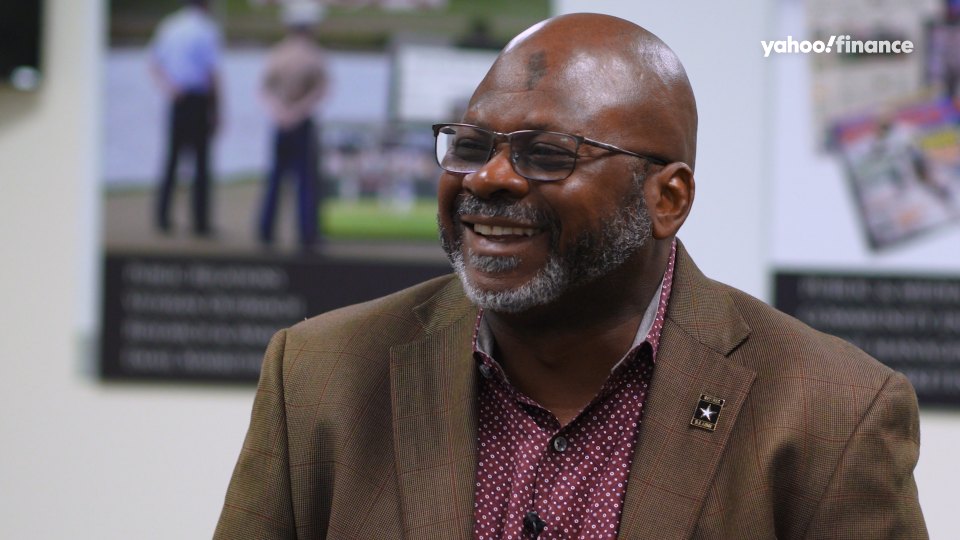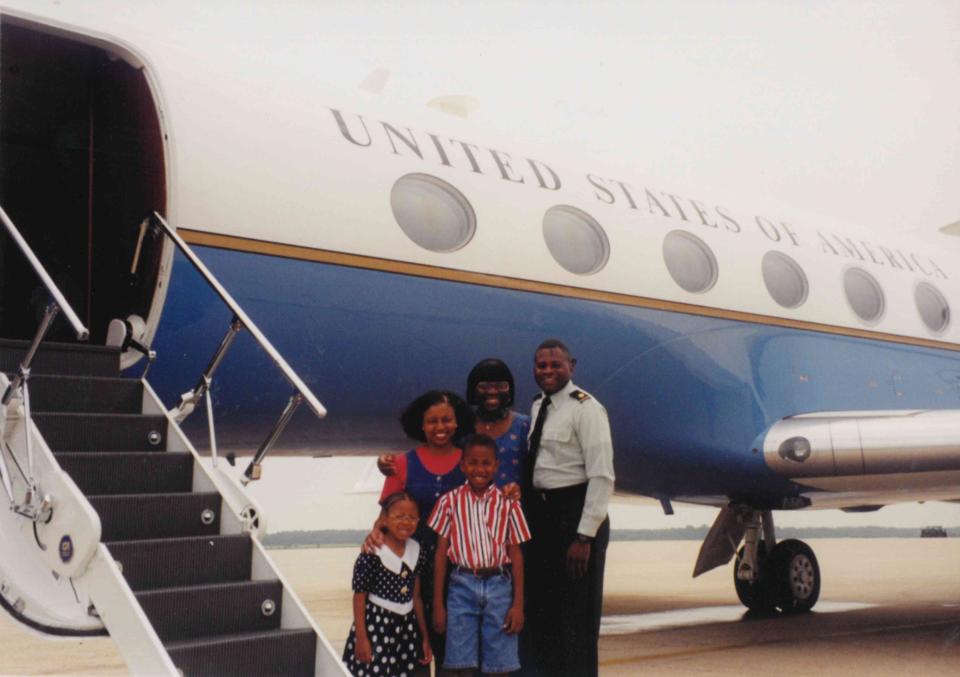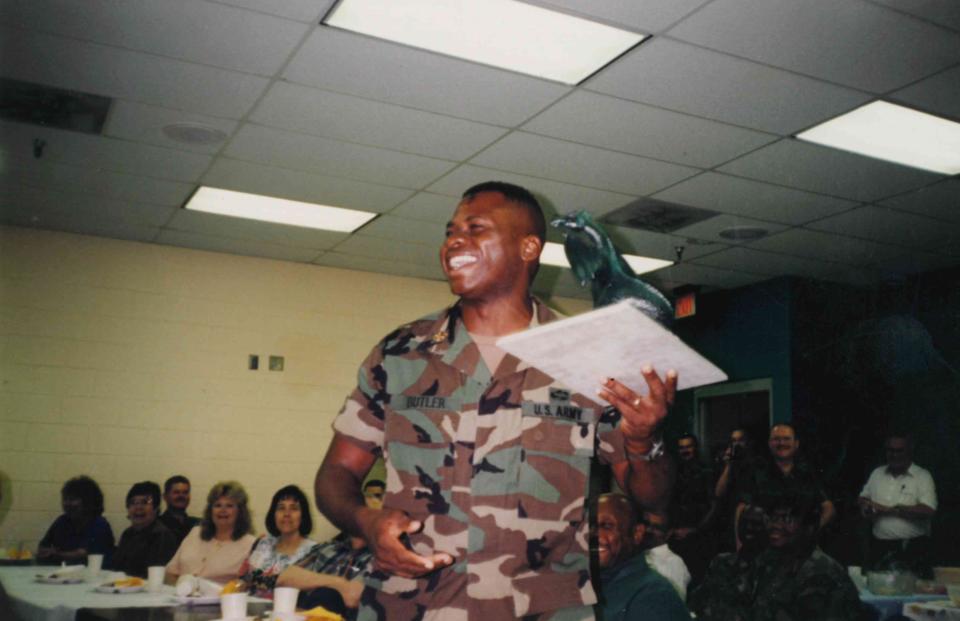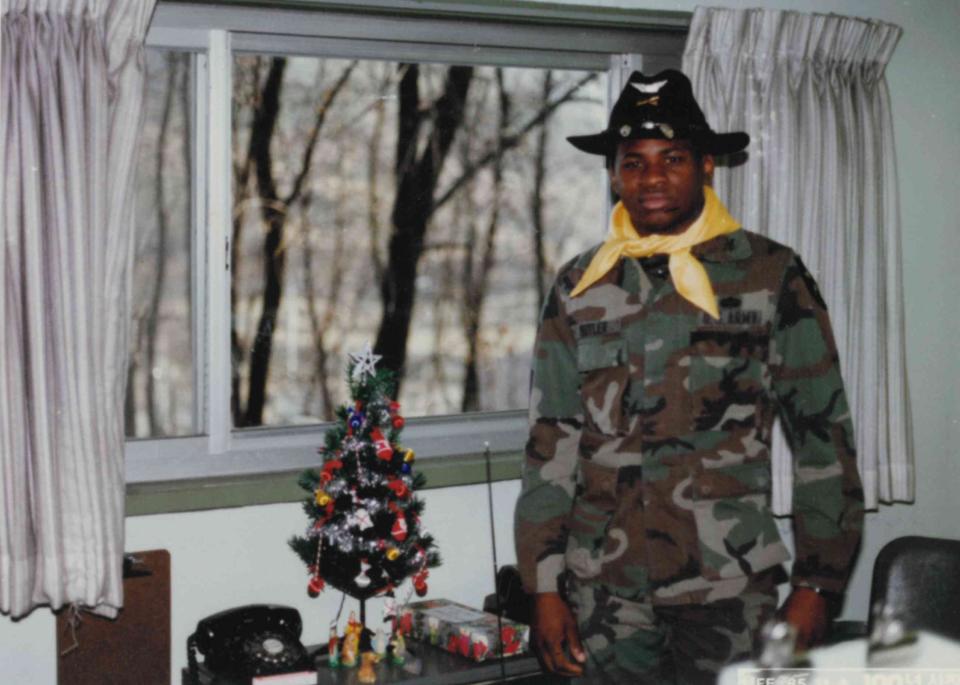How this Army veteran's business survived launching during the Great Recession
Over the course of his 22-year commitment to the U.S. Army, Brian Butler commanded troops through combat, served on the Homeland Security Council in The White House, and visited 68 countries.
Butler retired as a lieutenant colonel in 2006 but still applies the guideposts of dedication, teamwork, and integrity that were fostered in the military to a different assignment.
As founder, president, and CEO of Vistra Communications – a full-service marketing, communications and consulting agency – Butler leads a staff of 90 outside of Tampa, Florida. And his 12-year ascent to leader, small-business owner, and philanthropist almost didn’t happen.
“So when I retired from the Army, I actually didn't have a job lined up,” he said. “I looked for a job and there was not one to be had, so we decided to just start one.”

‘There really isn’t a playbook’
There’s an inherent risk that comes with starting a small business. That risk is even bigger when you’re launching a business in 2007, during a global recession. Ratcheting up the stakes was that Butler had a family to support.
But entrepreneurship wasn’t initially on Butler’s agenda when he and his wife, Maureen, a fellow former Army officer, moved to Tampa with their two children, Chris and Allison. Their enthusiasm for a more permanent life near extended family — a rarity for military families — was soured by a sluggish Florida job market that left Butler without a job.
“There really isn’t a playbook,” Butler said, looking back on his unexpected unemployment. You just “have just go in and figure it out.”
‘We invested our money — what little we had’
Drawing on his experience serving in combat, Butler knew he had to get creative and there wasn’t much room for error. Despite enormous economic headwinds and against his mother’s advice, he started Vistra as a cottage industry with modest, bootstrapped funds as Butler recalls the early days,
“From day one, we invested our money, what little we had, into this,” he said.
Vistra defied the odds as it slowly gained traction and carved out a niche, creating marketing and public relations plans for nonprofits and small businesses.

“Your business is never out of the woods,” he said. “You’re either growing or you’re dying.”
To him, that meant taking a good look at the business, setting goals, and evaluating growth opportunities over the first couple of years. After several iterations, Butler believed the business was sound.
“I can remember when we hired the first employee, and then the second employee, I said: ‘This really can work,’” he said. “It truly had to be a team concept, and I was used to a team concept. It’s what I did in the military.”
‘Where our team members have a voice’
Eventually, the company moved out of the Butler home and into a home of its own. The move was a necessity space-wise, but it also signified much more to clients and visitors.
“When they walk in our door, they tend to see us like any other business,” he said.
Situated in an old bank vault, Vistra is anything but a cold and sterile environment typically associated with its unique location.
Bulter, an early riser, positions himself in the lobby to personally greet every team member — that’s Vistra lingo for employee — in the morning. Each day begins with a 15-minute huddle and whiteboards adorn the walls that lay out weekly goals.
One lap around the office and you also notice the design is a metaphor for transparency and cohesion — two themes impressed upon Butler during his military training. Doorless offices and glass partitions allow the Florida sun to pour in, and even though a thick metal vault is at the core of the office, Vistra feels like an open book.
Motivational wall murals, mission-driven work, and a contagious camaraderie spirit create a familiar sense of belonging for Vistra’s team members — more than half have also served in the armed forces.
“We try to create an environment where our team members have a voice,” he said, “and part of that voice is being able to share concerns, and being able to hear and listen to what's going on, and help us to make better business decisions.”

‘Had to have an active role in the community’
Boasting a client portfolio of Fortune 500 accounts, federal agencies, and corporations, Vistra continues to expand its capabilities and talents. Butler attributes this success to the breadth of his team. Now almost 90 strong divided between Tampa and Washington, D.C., Butler says, “We're going to look around one day soon, and we're going to have 100 employees.”
“Our diversity in age, diversity in ethnicity, diversity in experience, diversity in thought, diversity in male versus female, veteran versus non-veteran, that really helps to carry us and propel us,” he said.
Even as Vistra was growing and discovering its identity, Butler admits that philanthropy was one of the company’s guideposts. “For the business to grow and be effective, we had to have an active role in the community,” he said.
The office gives back in the form of mentorship programs with local elementary school students and connects with inner-city residents to help them look and feel their best. But Butler has a keen interest in helping veterans and active service members find their next calling after their military service is over.
“I try to help many of the young veterans understand how they can take their military experiences and apply them to various jobs today,” he said. “It really doesn't matter whether you were driving a truck, working in a kitchen, whether you were an engineer or a mechanic, you could take those experiences and apply them to positions where people need you today.”

‘People want to hire veterans’
Butler believes that the skills gained in the military are transferrable. And with a little word-smithing, a veteran’s value in the private sector can be impactful because employers are “looking for somebody just like you right now,” he said.
“People want to hire veterans because they know that veterans are going to show up early. They know that the veteran's going to finish the task. They know that veterans are going to put some ingenuity in getting it done,” he said. “They're going to endure because they have endured.”
Stephanie is a reporter for Yahoo Finance. She can be reached at stephanie.asymkos@yahoofinance.com. Follow her on Twitter @SJAsymkos.
Read more:
Inside American Dream's Big SNOW: What the indoor ski slope gets right – and wrong
Australia is burning – here's how to help during the bush fire crisis
What will Harry and Meghan do now? A high-net-worth personal finance expert weighs in
Follow Yahoo Finance on Twitter, Facebook, Instagram, Flipboard, SmartNews, LinkedIn, YouTube, and reddit.

 Yahoo Finance
Yahoo Finance 
